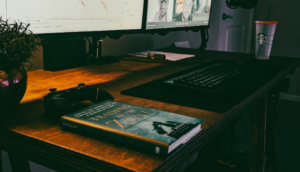When people trade in financial markets, they often focus on things like strategies and analyzing data. But there’s something equally important that can affect their trading a lot, and that’s how they feel and think when they’re trading. This is what we call trader psychology, and it plays a big role in making smart decisions in trading.
How Emotions Work in Trading
Trading can be an emotional rollercoaster. When traders make money, they feel great. But when they lose money, it can make them feel really bad. These emotions can mess up a trader’s ability to make good choices.
1. Fear and Greed: These are two powerful feelings in trading. Fear can make a trader too scared to make a trade, even when it’s a good idea. Greed can make them take big risks just to make more money.
2. Overconfidence: Sometimes, when traders have a few successful trades, they start thinking they can’t make mistakes. This can lead to them taking big risks and losing money.
3. Impatience: Trading needs patience. Traders often have to wait for the right moment to make a trade. If they get impatient, they might make bad decisions.
4. Hating Losses: People don’t like losing money, so they sometimes hold on to losing trades for too long, hoping they’ll turn around. This can lead to bigger losses.
How Emotions Affect Decisions
The emotions we just talked about can really mess up a trader’s decision-making:
1. Confirmation Bias: Traders might only pay attention to information that agrees with what they already think. This can make them miss important information.
2. Gambler’s Fallacy: Some traders think that if something hasn’t happened in a while, it’s more likely to happen now. This isn’t true, but it can lead to bad decisions.
3. Anchoring: Traders might get stuck on a certain price or past success and base their decisions on that, even when it doesn’t make sense.
4. Hindsight Bias: After a trade is done, traders might think they knew what was going to happen all along, even if they didn’t. This can make it hard for them to learn from their mistakes.
How to Improve Trader Psychology
Knowing how emotions affect trading is the first step to making better decisions:
1. Know Yourself: Pay attention to how you feel and what biases you might have. Keep a journal to track your emotions while trading.
2. Manage Risk: Make rules for how much you’re willing to risk on each trade and stick to them. This helps control emotions.
3. Keep Learning: Learn about trader psychology from books and experts. The more you know, the better you can deal with your emotions.
4. Stay Calm: Practice techniques like mindfulness to stay calm and focused when you trade.
5. Plan Your Trades: Have a clear plan for when to buy and sell. Stick to your plan, even if your emotions are telling you something else.
Trader psychology is really important in trading. Emotions and biases are part of being human, and they’ll always be there in trading. But by understanding them and using strategies to handle them, traders can make better decisions and have a better chance of success. Trading isn’t just about numbers; it’s also about mastering your feelings and thoughts.



